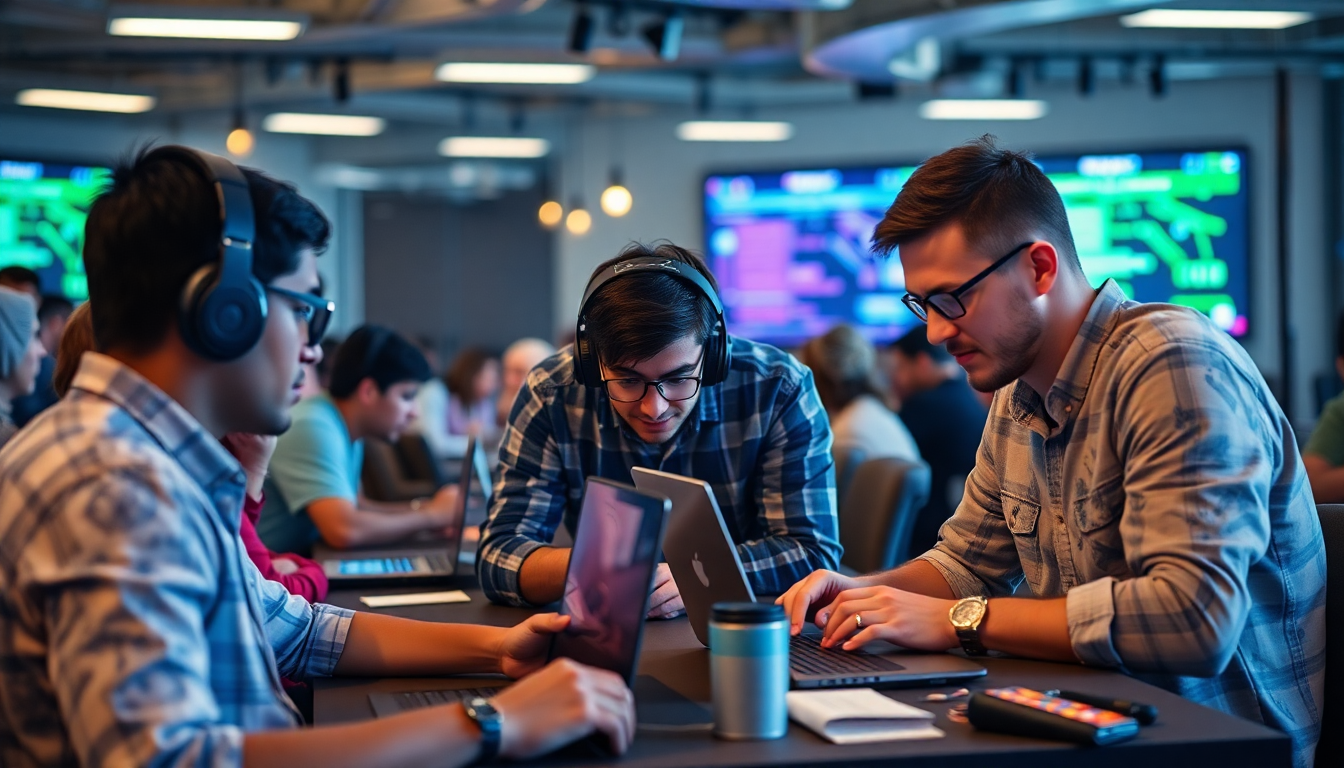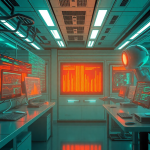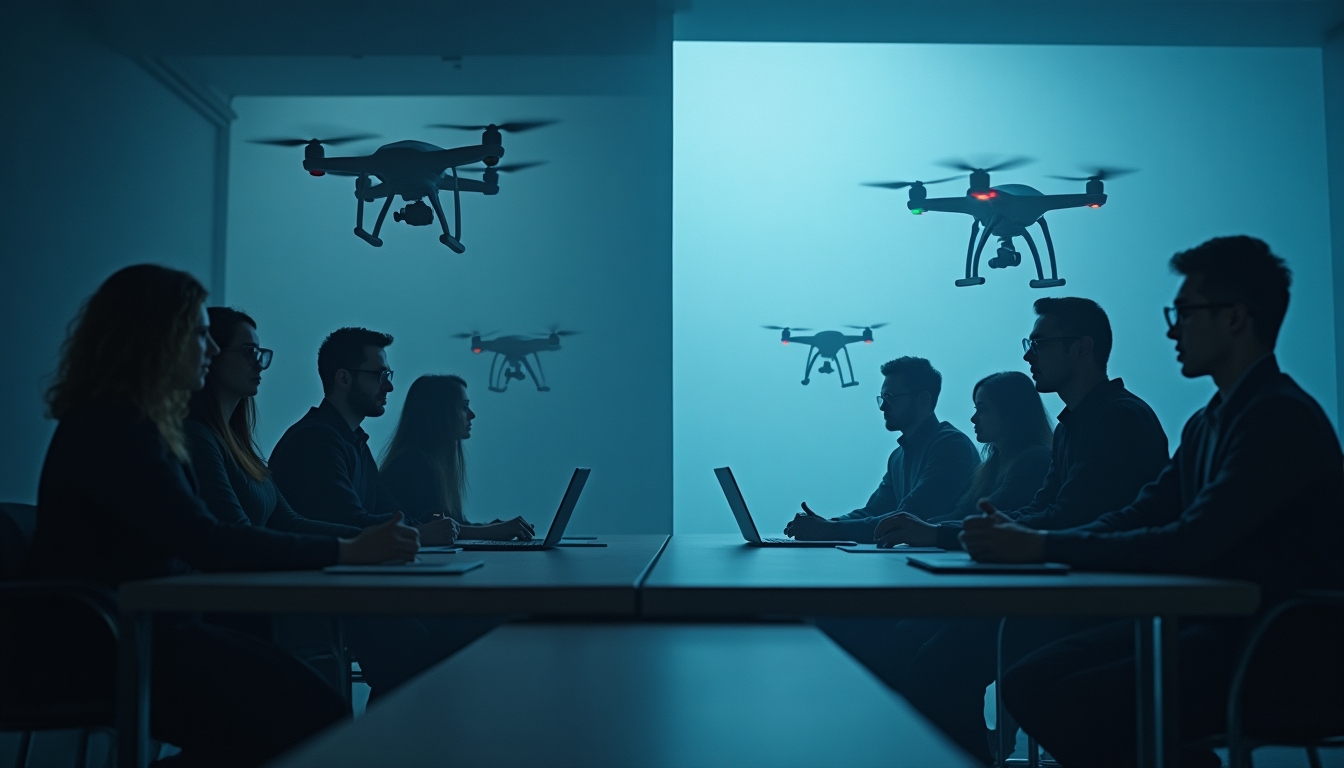How Turing Became the Secret Weapon in the AI Coding Race
When OpenAI and Anthropic go head-to-head, it’s easy to think it’s all about algorithms, compute power, and talent wars between engineers. But behind this headline battle lies a lesser-known player—Turing, a startup specializing in on-demand software engineers. What’s wild is that Turing’s coders are not just patching code; they’re also training AI models to code better. It’s like finding out that pit crews in Formula 1 also design the racecars.
The Information recently uncovered that Turing's partnership with OpenAI has been fueling ChatGPT’s rise. Google, seeing the writing on the wall, raced to recruit the same programmers. For a tech giant accustomed to dominating, discovering OpenAI had a secret weapon in Turing must’ve felt like learning your archrival holds the cheat codes to your game.
Google’s Scramble to Recruit Turing’s Engineers
Last fall, Google AI leaders met with Jonathan Siddharth, Turing’s CEO, and asked an urgent question: How many engineers would it take to teach Google’s AI to write better code? The answer? Somewhere between 500 to 1,000 engineers—because nothing says “we’re falling behind” like ordering a small army of coders.
By this point, OpenAI had already spent a year with Turing engineers refining the coding abilities of their AI models. With millions of paying customers—many of them software developers—using ChatGPT to generate and debug code, OpenAI was getting an edge Google couldn’t ignore. And when OpenAI pulls ahead, Anthropic isn't far behind. Suddenly, it wasn’t just a race; it was a coding arms race, with Turing’s engineers sitting squarely at the center.
The Battle for AI Coding Supremacy: OpenAI vs. Anthropic vs. Google
This isn’t just another chapter in the tech giants’ rivalry. It’s about who controls the future of AI-powered coding tools. Imagine a world where software developers aren’t bogged down with syntax errors or endless debugging; they just tell an AI what they need, and it delivers perfect code on the spot. That’s the promise these companies are chasing—a world where AI takes the heavy lifting out of programming.
OpenAI’s ChatGPT is already making strides toward that future. Developers flock to ChatGPT for quick fixes and full scripts. Meanwhile, Anthropic, with its focus on safer AI models, isn’t just sitting on the sidelines. It’s angling to develop AI tools that are both powerful and ethical—a pitch that’s resonating in the tech world’s current climate of skepticism toward unchecked AI development.
But Google? Google is playing catch-up, and that’s not a position it’s used to. With Turing’s engineers now courted by everyone in this race, Google has to hope that getting them on board will be enough to close the gap.
What Makes Turing’s Engineers So Special?
Turing is no ordinary engineering firm. Its model is based on remote, part-time, on-demand coders, making it a flexible solution for companies that need talent fast. Siddharth’s vision was to democratize software engineering—not just by matching coders to projects, but by optimizing those matches with AI. Turing identifies which engineers have the precise skills a client needs and deploys them efficiently, cutting down on recruitment headaches.
This flexibility has proven invaluable to companies like OpenAI and Anthropic, who need massive engineering resources on short notice. Turing’s engineers aren’t just filling gaps—they’re actively teaching AI models how to code, using real-world coding tasks as training data.
The Future of Software Development: Humans and AI Working Together
This race isn’t about replacing software engineers; it’s about augmenting their capabilities. AI tools like ChatGPT are transforming how developers work, but the human touch is still irreplaceable—for now. Platforms like Turing show that the future lies in collaboration between AI and human programmers. Instead of viewing AI as a competitor, engineers can see it as a powerful tool—one that helps them code faster, smarter, and with fewer errors.
The ultimate winner in this coding race will be the company that figures out how to blend human creativity with AI precision. Whether it’s OpenAI, Anthropic, or Google, the future of coding isn’t about picking sides—it’s about learning to thrive in a hybrid world where human and machine work hand-in-hand.
Turing: The Unsung Hero or the New Kingmaker?
The most fascinating part of this story is the evolution of Turing’s role. What started as a startup helping companies find part-time engineers has morphed into a key player in the battle for AI dominance. Turing is now a kingmaker in the tech world—deciding which companies get access to the engineering talent they desperately need.
And as Turing grows, the question becomes: Will it remain a neutral player, or will it start choosing sides? Could Turing eventually align with a single tech giant, cementing that company’s dominance in the coding arms race? The future is wide open—and Turing holds the cards.
What’s at Stake: The Future of Coding as We Know It
This isn’t just about a few companies vying for market share. It’s about the future of software development itself. The tools being developed today will shape how future generations write code. Will we see a future where AI tools handle all coding tasks, leaving engineers free to focus on creativity and design? Or will developers become overly reliant on these tools, losing essential coding skills in the process?
The outcome of this race matters not just for the companies involved, but for the entire tech ecosystem. If AI tools like ChatGPT become the norm, they could democratize access to coding, allowing more people to build software without years of training. On the flip side, the industry could see a concentration of power among a handful of tech giants, controlling the future of AI-enhanced development tools.
What Do You Think? Join the Conversation
Will Turing’s engineers continue to play a pivotal role in this AI coding race, or will the balance of power shift once again? Are we heading toward a future where AI handles most coding tasks, or will human ingenuity always be necessary? Share your thoughts in the comments below—we want to hear from you.
Become a permanent resident and eventually a citizen of the "Shining City on the Web". Join the iNthacity community and stay ahead in the ever-evolving world of technology and software development.
Disclaimer: This article may contain affiliate links. If you click on these links and make a purchase, we may receive a commission at no additional cost to you. Our recommendations and reviews are always independent and objective, aiming to provide you with the best information and resources.
Get Exclusive Stories, Photos, Art & Offers - Subscribe Today!
























Post Comment
You must be logged in to post a comment.